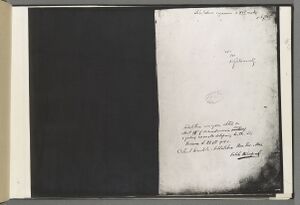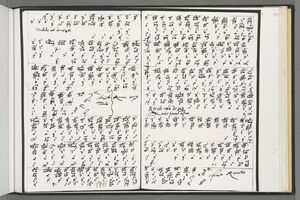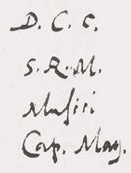Warsaw Musical Society Tablature

The Warsaw Musical Society Tablature (also called Łowicka tabulatura organowa) is a tablature, apparently dated ~1580, that was housed by the Warsaw Musical Society. It was destroyed in WWII, but photographs of the manuscript were ordered by Willi Apel.
Around July 2023[Citation needed], the photographs taken of the manuscript, being held at Harvard University, were made available online.
This article is a stub, you can help expand it with more information and citations!
Description

Many aspects of the manuscript are not known, both because of how it first became known to musicologists and it's destruction in World War II. The manuscript was given to the Warsaw Musical Society by Aleksander Poliński, but he did not know or say where it was found. The musicologist Melania Granczyńska stated that the manuscript was dated to the year 1580, but did not say how she determined this. The photographs taken of the manuscript to not have a visible year, either 1580 or any other. It has been theorized by Jerzy Gołos that this manuscript could be connected with a manuscript in the town of Łowicz which was given or taken away by an unknown person[Citation needed].
As for the question of attribution, there is no full composer's name visible. However, some initials that are located in the manuscript have been linked with several 16th-century Polish court composers. Each initial appears one time, except for J.S. which appears three times.
 |
J.S. | Jakub Sowa |
 |
D.C.C.S.R.M. Musici Cap. Mag. | Krzysztof Klabon |
| M.W. | Marcin Wartecki | |
| M.L. | Marcin Leopolita |
It has been theorized that Sowa was the scribe of the pieces marked J.S. (and by extension the rest of the manuscript, because the same hand can be seen throughout) because the initials appear in "monogrammatic form". Klabon was the master of the chapel of King Stefan Batory from 1576-1586, the fact that this title "Cap. Mag." is referenced suggests that the manuscript was written during this time.
One matter of debate is wether the pieces in this manuscript are compositions written for the organ or if they are transcriptions (intabulations) of choral works. The latter opinion was stated by Zdzisław Jachimecki, but Otto Gombosi stated otherwise, as it was found that many of the compositions are written to be performed in alternatum (for example, the Magnificat settings are set so that alternating verses starting with verse 1 are played on the organ).
References
Online facsimile: iiif.lib.harvard.edu accessed 11 August, 2023. Mirrored: IMSLP869460
The organ tablature of Warsaw Musical Society. Antiquitates musicae in Polonia vol. 15. Warsaw: Warsaw University Press, (1976?)